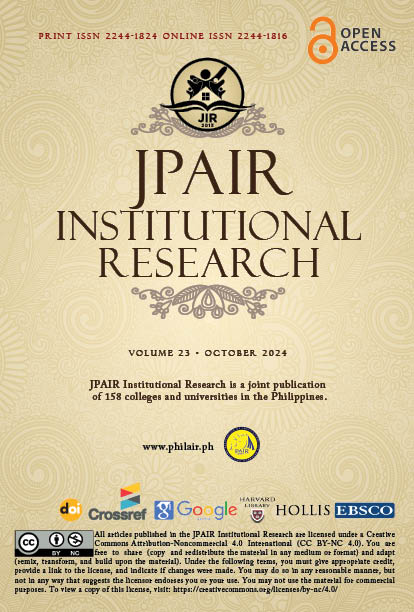Project WINGS: Word-Banking to Address Gaps in Science Education
DOI:
https://doi.org/10.7719/irj.v23i1.904Keywords:
COVID-19, MELC, DLL, Project WINGS, SPURN, Academic Performance, quasi-experimental design, PhilippinesAbstract
The COVID-19 pandemic has caused students to fear for their health and their studies. It has created gaps that educators need to fill when they return to formal education. The main purpose of this research was to evaluate the effectiveness of word banking in science for improving the proficiency levels of seventh-grade students. The study aims to address gaps in science education arising from new-normal circumstances. It also seeks to assess students' proficiency in science before and after the implementation of Project WINGS. The research found that implementing Project WINGS, which incorporated the SPURN strategy (Spelling, Pronunciation, and Usage of words, Reading, and Numeracy), significantly improved seventh-grade students' proficiency levels in science. The quasi-experimental design, utilizing pre-test and post-test data, indicated a notable enhancement in students' performance, suggesting that daily word banking effectively addressed educational gaps exacerbated by the COVID-19 pandemic.
References
Alejo, A., Naguib, K., & Yao, H. (2023). Education in a Post-COVID World: Towards a RAPID Transformation. UNICEF.
Basri, H., Amin, S., Mirsa, U., Mukhlis, H., & Irviani, R. (2020). Learning theory of conditioning. Journal of Critical Reviews, 7(8).
Bobbitt, Z. (2020, September 9). Pretest-Posttest Design: Definition & Examples. Statology. https://www.statology.org/pretest-posttest-design/#
Downloads
Published
Issue
Section
License
Copyright (c) 2024 Maria Lanie V. Manago, Regina M. Senido

This work is licensed under a Creative Commons Attribution-NonCommercial 4.0 International License.









